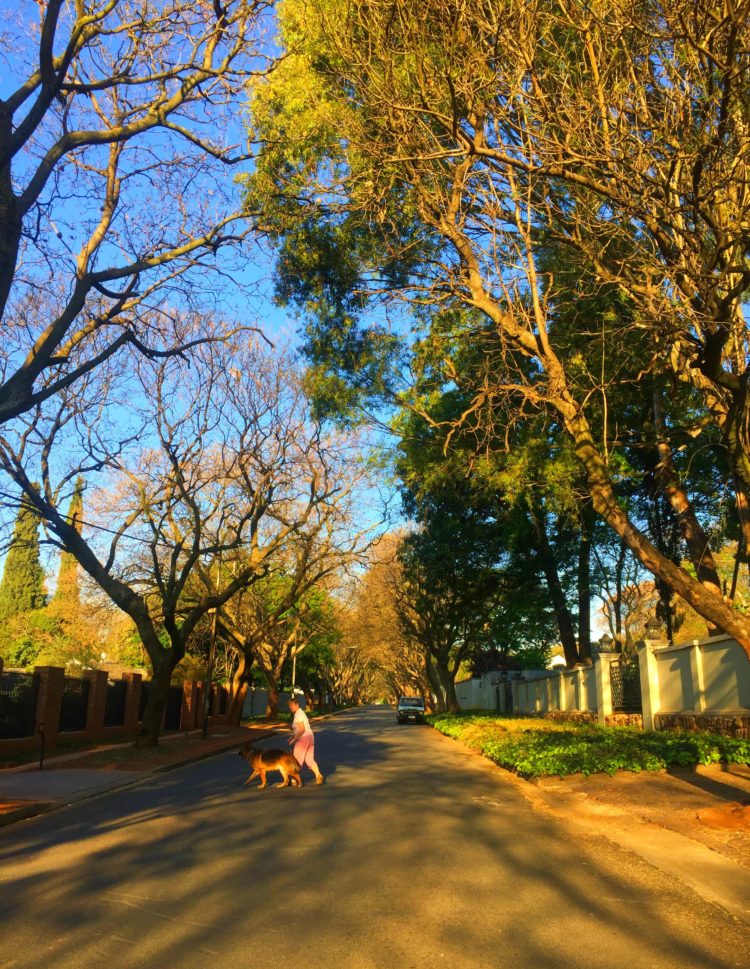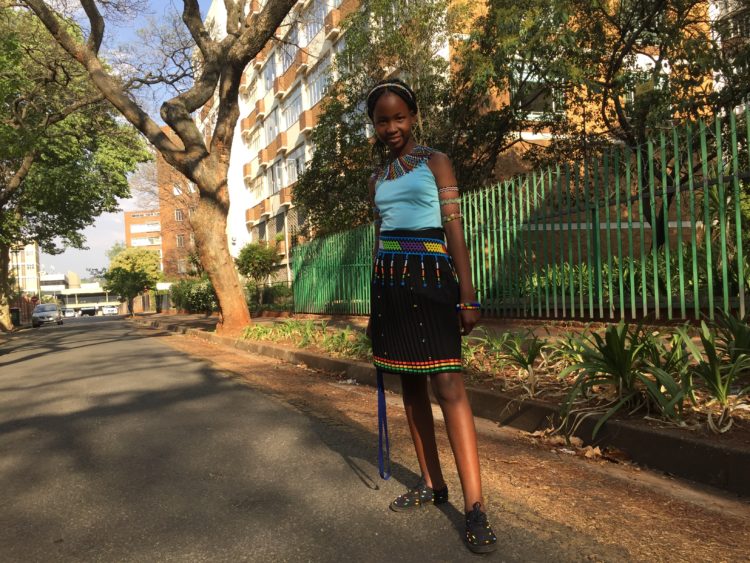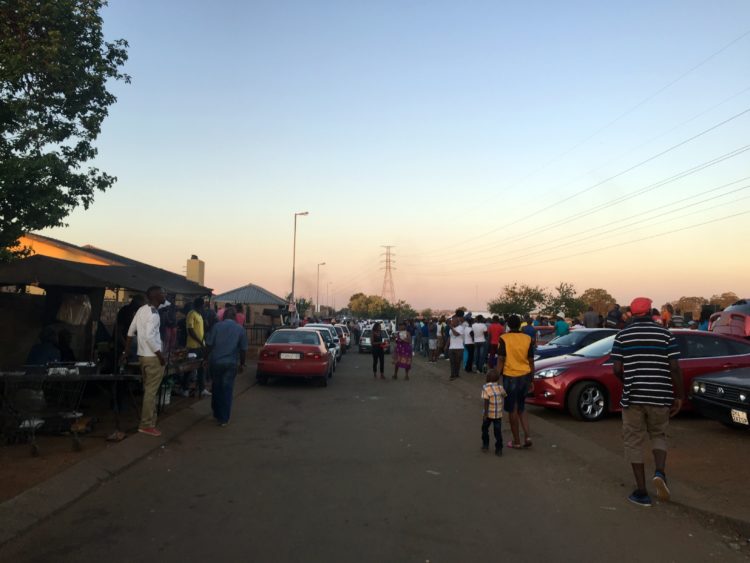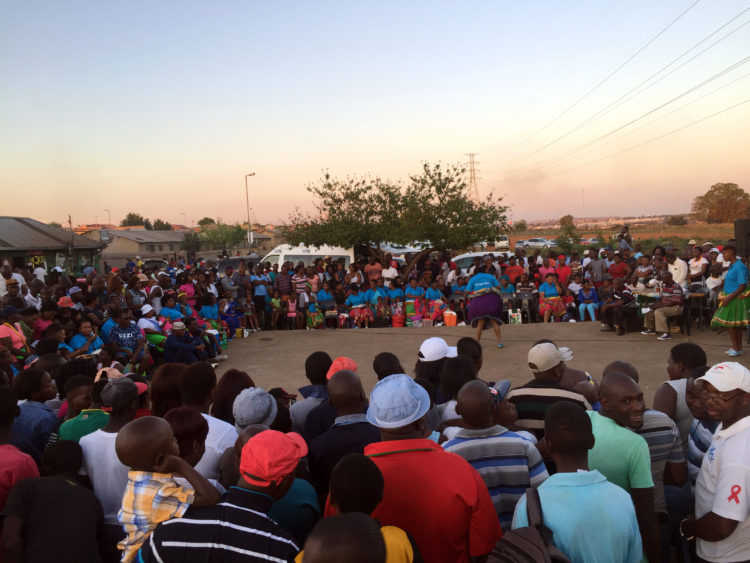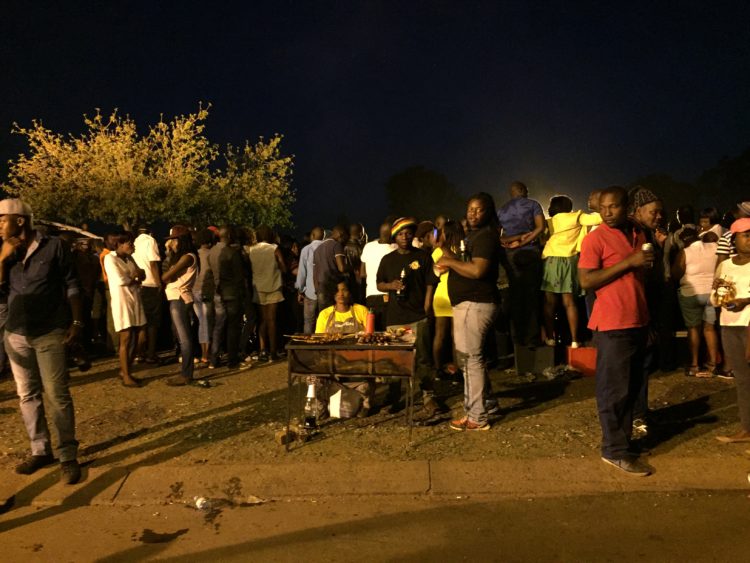It is widely assumed that everybody who lives in the townships wants to make it out if they can. It would be a surprise if people wanted to remain in the systematically undeveloped areas assigned to black people by the apartheid government. So why do so many young people living in the suburbs of Johannesburg go back to the townships to have a good time?
Many middle-class people spend the entire weekend almost every weekend in the townships, and then come back to Johannesburg before the working week begins. If you don’t believe me, try to drive on the M1 North on a late Sunday afternoon. The road is impossible due to the cars coming back from Soweto for work and school the next day. It seems like when we want to be ourselves, or at least the black part of ourselves, we have to leave town.
Other than to visit family, most of the people I speak to say they go to townships for chisanyama, or for music or late night vibes. Rendani Mukheli from I See a Different You says, ‘I just need to hear my people in my township speak the way I grew up speaking.’ He added that in the suburbs he can’t express himself in a way that makes him feel complete. I can relate; I also have to go to Chiawelo or rural Limpopo when I went to dance xibelani or hear Xitsonga music.
Noentla is a young Thwasa training to become a sangoma, or traditional healer, in the Eastern Cape. She grew up in Johannesburg but felt that she could not undergo the process while still in the city. ‘We can’t practice our culture because I’m scared of what the neighbors are going to say.’ She’s worried about her neighbours complaining about impepho, the traditional incense she uses.
It’s okay you can be African… You just can’t look African.
In town, you don’t see black South Africans in their traditional clothes except at weddings or on heritage day. So whose culture do we wear on a daily basis if our own culture is reserved for weddings, ceremonies and public holidays? And even then, it tends to be a version of our culture that is palatable for western tastes. Noentla speaks about being asked to leave restaurants in both Johannesburg and Cape Town because of her Thwasa attire of beads, feathers, animal skins and bare feet. When she is asked to leave, she is told that it is because she is making the other customers feel uncomfortable. Noentla says, in town, ‘It’s okay you can be African… You just can’t look African.’
Often it is fellow black people who are the gatekeepers to this type of society, we are the ones who keep each other in check. It is the black security guards who say I can’t use the garden in our apartment complex after five because I will disturb the neighbours. It’s fellow black people who tell my friends to turn down the volume when they are parked outside. Another friend was telling me how much he likes eating cow’s head and pap and how he could eat it every day. But when I asked him if he would like it if there were places in his suburb cooking that food, he said, ’Definitely not!’ instantly, completely oblivious to the irony. We have bought into it. We equate success and a good quality of life with a lifestyle that is, at its core, anti who we are.
Ntsako, a friend who lives in Soweto, says, in the township ‘we are freer than we are in the suburbs.’ When I ask him why, he says, ‘We don’t have curfews. The suburbs are quiet and clean. In the hood there’s [sic] people and there’s [sic] life.’ But when I ask him where he will move to when he leaves his parents’ house, he says around the quiet suburb of Killarney. So despite the fact that he is happier, freer and more himself in Soweto, he aspires to be somewhere else.
There is a disturbing conflation of black culture with poverty, which continues to prevail because when people become successful, they ditch black culture instead of reinterpreting it into a middle- or upper-class context.
There is a conflict here between what we want and what we think we want. We like Kotas, Pap, ChisaNyama and hanging out ‘at the corner,’ but we don’t think they are compatible with what we consider a desirable environment. So when we crave those things, it means that there are parts of us that are not compatible with our environment. And those are the black parts.
As Ntsako said, the suburbs are ‘quiet and clean.’ A success of apartheid is to make us feel that anything like us is not. The irony here is that those places are only associated with dirt and rowdiness because we keep them confined to areas without service delivery. Also, there is a disturbing conflation of black culture with poverty, which continues to prevail because when people become successful, they ditch black culture instead of reinterpreting it into a middle- or upper-class context.
Just like those who drive back from Soweto on Sundays to get to work the next day, everyone I talk to says the reason they live in town is because it is better for their careers. A World Bank study titled Economics of South African Townships supports this by showing the disparities between towns and the townships which they say are ‘spatially disconnected from urban centers that offer better economic prospects.’ This is a direct legacy of apartheid planning. The result is that we still have this relationship with the city where we are here to work, not to feel at home. Our public transport system still reflects this. Public taxis stop running just after the sun goes down and they have deposited the working masses back to the townships. Even the famous Gautrain stops running at 9pm. And though more black people live (and not just work) in town now, the city has not adjusted to this fact.
In the suburbs of South AFRICA, we live in a white society where we are only welcome if we adhere to its standards.
In the suburbs of South AFRICA, we live in a white society where we are only welcome if we adhere to its standards. We’ll let you stay if you are quiet. Your daughters can come to our schools but only if they remove, hide, or straighten their black hair. Our daily lives are white, and when we want a break or when the blackness still left in us craves masonja, we have to go elsewhere or wait for special occasions.
Imagine if an Italian had to leave Rome to find Italian food, or a French person had to leave Paris to speak French on the streets. We would say, so what culture are Parisians living? Even in other African countries, it doesn’t matter how affluent the neighborhood in Dakar, there must still be thieboudjen close by. In Dar es Salaam, in what neighbourhood would you fail to find nyama choma? But in my suburb in Johannesburg, you will not find maginya anywhere. Here you are white, you can be black elsewhere is the message and we are completely fine with it. When we have foreign visitors we take them to the townships to experience black South African life because we know very well that the rest of the time we live like ‘bad imitations of those who colonised us,’ as bra Hugh Masekela said in a recent interview on Kenyan TV.
But there is hope. I think the fact that so many of us still crave elements of our culture is good. It shows that although we have been badly beaten, we are still alive. There is also a feeling that we are reawakening lately. The laws in the former white schools about black hair are not new for instance, we are simply waking up to the injustices.
I am not advocating for people to live in the townships. Why should we and our cultures remain marginalised away from the wealth of the country? I’m saying that one of the scars apartheid left on us is that we can’t imagine a society in which our environment is built with us in mind. Even if we were all black in the suburbs we’d still live this way because we haven’t imagined what a truly African city that is actually built for us, not just to exploit our labour, would look like. We haven’t imagined a Johannesburg that reflects our real tastes, our deep desires, and in which we feel complete. We have simply moved into the white city trying to bring as little of ourselves with us as possible.


